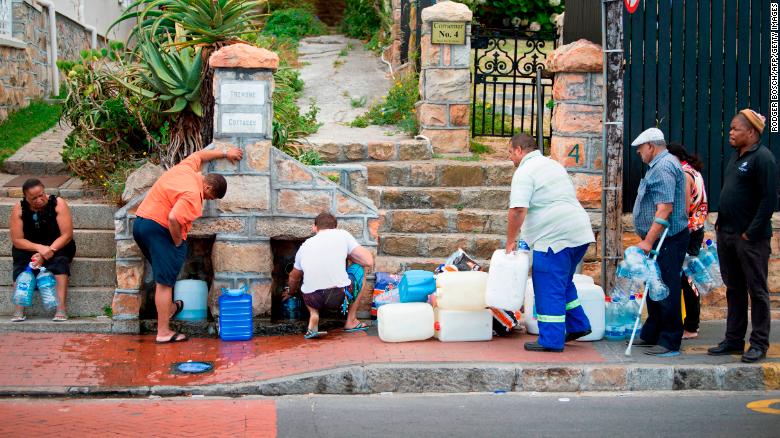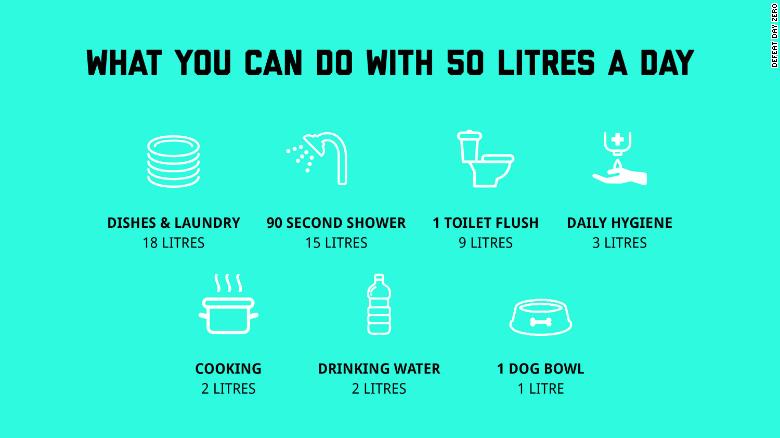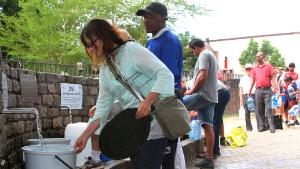In less than 3 months, a major international city will likely run out of water
(CNN)In Cape Town, South Africa, they're calling it "Day Zero" -- the day when the taps run dry.
A few days ago, city officials had said that day will come on April 22. This week, they moved up the date to April 12.
Cape Town is South Africa's second-largest city and a top international tourist draw. Now, residents play a new and delicate game of water math each day.
They're recycling bath water to help flush toilets. They're being told to limit showers to 90 seconds. And hand sanitizer, once somewhat of an afterthought, is now a big seller.
"Unwashed hair is now a sign of social responsibility," resident Darryn Ten told CNN.

People collect drinking water from pipes fed by an underground spring in St. James, about 25 kilometers from the city center of Cape Town.
The genesis of the crisis
So how did this happen? How does a major city in the developed world just run dry?
It's been a slow-motion crisis, exacerbated by three factors conspiring together:
- The worst drought in over a century, which has pushed Cape Town's water scarcity into a potentially deadly horizon
- Its population, which is 4 million and growing quickly
- A rapidly changing climate
Even with the predicament they find themselves in, residents haven't dropped their water use significantly, said Patricia De Lille, Cape Town's mayor.
The city has lowered the water pressure in their mains to help stretch the water supply. But usage is still 86 million liters above its target goal.
"It is quite unbelievable that a majority of people do not seem to care and are sending all of us headlong towards Day Zero," a statement from the mayor's office said. "We can no longer ask people to stop wasting water. We must force them."
Starting February 1, residents will only be allowed to use 50 liters, or a little over 13 gallons, of water per person, per day.

Coping with the shortage
The shortage is forcing some residents to get creative.
Alistair Coy, who's vacationing in Cape Town from the United Kingdom, strains the water that's left over from boiling potatoes into a bucket for things like washing clothes.
News Courtesy: www.cnn.com











